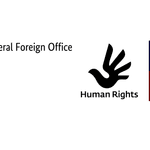
Webinar Series on Human Rights and the U.S. Death Penalty
In 2022, DPI hosted a series of webinars on topics related to human rights in the U.S. death penalty
DPI Analysis — At Least 1,300 Prisoners are on U.S. Death Rows in Violation of U.S. Human Rights Obligations
Half of U.S. death row has been imprisoned 20 years or more, in violation of international human rights agreements
Overview
International human rights treaties declare that “Every human being has the inherent right to life.” This right, set forth in Article 6 of the International Covenant on Civil and Political Rights (ICCPR), adopted by the United Nations (UN) in 1966, further provides that “no one shall be arbitrarily deprived of his life.” Article 6 further states that “In countries which have not abolished the death penalty, sentence of death may be imposed only for the most serious crimes in accordance with the law in force at the time of the commission of the crime.” The ICCPR prohibits the use of the death penalty “for crimes committed by persons below eighteen years of age” and bars the execution of women while they are pregnant. Article 7 of the ICCPR declares that “No one shall be subjected to torture or to cruel, inhuman or degrading treatment or punishment.”
When the United States ratified the ICCPR in 1992, it did so with specific reservations relating to the use of the death penalty. First, it “reserve[d] the right, subject to its Constitutional constraints, to impose capital punishment on any person (other than a pregnant woman) duly convicted under existing or future laws permitting the imposition of capital punishment, including such punishment for crimes committed by persons below eighteen years of age.” Second, it stated that “the United States considers itself bound by article 7 to the extent that ‘cruel, inhuman or degrading treatment or punishment’ means the cruel and unusual treatment or punishment prohibited by the Fifth, Eighth, and/or Fourteenth Amendments to the Constitution of the United States.” It further declared that the treaty’s provisions “are not self-executing,” meaning that they are not enforceable under U.S. domestic law without enabling legislation by Congress.
The ICCPR establishes the end of the death penalty as a human rights goal, declaring that “Nothing in [Article 6] shall be invoked to delay or to prevent the abolition of capital punishment by any State Party to the present Covenant.” This goal was codified in the Second Optional Protocol to the International Covenant on Civil and Political Rights, aiming at the abolition of the death penalty, which was promulgated on December 15, 1989. As of December 2022, ninety nations were parties to the optional protocol.
Article IV of the American Convention on Human Rights expands upon the right to life recognized in the ICCPR, providing that the death penalty “shall not be extended to crimes to which it does not presently apply” and “shall not be re-established in states that have abolished it.” It also provides that capital punishment shall not be imposed upon individuals who were age 70 or older at the time of the offense, or while a petition seeking clemency is pending decision. The United States is not a party to the American Convention.
Some of the other international human rights treaties that have an impact on the administration of capital punishment in the U.S. are: the Universal Declaration of Human Rights, the American Declaration of the Rights and Duties of Man, the International Convention on the Elimination of All Forms of Racial Discrimination, the Convention on the Rights of the Child, the Vienna Convention on Consular Relations, and the United Nations Standard Minimum Rules for the Treatment of Prisoners (the Nelson Mandela Rules).
At Issue
Globally, the death penalty is typically examined through a human rights framework, but the U.S. generally views the issue through a criminal legal lens. Annual UN reports on the use of capital punishment worldwide regularly focus on the ways in which the administration of the death penalty violate fundamental human rights, including the denial of due process, racial discrimination, secrecy, and inhumane conditions of confinement and methods of execution. The European Union has repeatedly stated its opposition in all circumstances to capital punishment as an inherent violation of the human right to life, as has Pope Francis on behalf of the worldwide Catholic Church. Human rights organizations such as Amnesty International and Human Rights Watch have also stated their universal opposition to the death penalty.
This discrepancy between international and domestic discourse is reflected in the a lack of emphasis on human rights in the U.S.. In August 2022, UN Committee Expert and Country Rapporteur Faith Dikeledi Pansy Tlakula, on behalf of the UN Committee on the Elimination of Racial Discrimination, “expressed concern at the lack of an institutionalised coordinating mechanism such as a national human rights institution” in the U.S.
In 2007, the UN General Assembly adopted a resolution calling for a worldwide moratorium on the death penalty with a view to abolition. In each of the eight General Assembly biennial sessions since, the UN has approved new versions of this resolution, with its December 15, 2022 vote receiving 125 votes in favor, 37 against, and 22 abstentions. The United States, along with Iran, Saudi Arabia, North Korea, China, and Vietnam, voted no. A memorandum explaining the U.S. vote asserted that “judicial enforcement of the Eighth Amendment of the U.S. Constitution ensures substantive due process that applies at both the federal and state levels and prohibits methods of execution that would constitute cruel and unusual punishment.”
A July 2022 report of the UN Secretary-General on the Question of the Death Penalty noted that “170 States have abolished or introduced a moratorium on the death penalty either in law or in practice, or have suspended executions for more than 10 years.” Abolition of the death penalty is a prerequisite for membership in the European Union and the U.S. remains an outlier as one of the only western democracies to retain capital punishment.
The U.S. rarely ratifies international human rights instruments and when it does, it typically declares them non-self-executing and includes reservations exempting itself from certain provisions. The five ratifications of human rights treaties by the U.S. are notably fewer than the numbers ratified by its neighbors, Canada (13) and Mexico (16), and its allies in Europe, Australia, and New Zealand.
What DPI Offers
In 2022, DPI undertook a new project on Human Rights and the U.S. Death Penalty that featured a series of events and activities undertaken with the support of the Foreign Office of the Federal Republic of Germany. The events included a live presentations on human rights and the death penalty in Berlin and at the Germany Embassy in Washington, D.C., a webinar series examining various policy issues relating to the U.S. administration and use of the death penalty, the recording of a podcast viewing racial issues in the administration of the U.S. death penalty through a human rights lens, and the first of DPI’s human rights webpages. The webinars examined Race, Human Rights, and the U.S. Death Penalty; Human Rights, Excessive Punishment, and Conditions of Death-Row Confinement in the U.S., and Secrecy, Execution Methods, & the International Response.
DPI provides webpages on Foreign Nationals on U.S. Death Row, including violations of U.S. human rights obligations to provide capitally charged defendants notice of their right to consular assistance and on major reports on human rights issues in the death penalty worldwide. These include Amnesty International’s annual reports on global use of the death penalty, Harm Reduction International’s reports on the use of the death penalty for non-violent drug offenses in violation of international law, and the Cornell Center for the Death Penalty Worldwide’s report on the application of the death penalty against women. DPI also offers human rights analysis of the confinement of prisoners on death rows across the U.S., documenting more than 1,500 violations of U.S. human rights obligations.

DPI would like to especially thank our former Executive Director, Robert Dunham, for his inspiration in envisioning and developing this human rights project.
We would also like to acknowledge the generous assistance from the Foreign Office of the Federal Republic of Germany for encouraging and supporting this focus on human rights and the death penalty.
News & Developments
News
Sep 25, 2025
Iran Hits 1000 Execution Mark, Highest Total in Three Decades
Norway-based Iran Human Rights (IHRNGO) has reported that at least 1000 people have been executed in Iran between January 1 and September 23, 2025 — a thirty year high. This is the fifth consecutive year that Iran has experienced an increase in executions, with the biggest year-over-year increase (43%) occurring in 2023, in the aftermath of the“Women, Life, Freedom” nationwide protests. Most executions continue to be carried out for offenses that do not meet the…
Read MoreNews
Sep 12, 2025
30 Years Ago, South Africa Abolished the Death Penalty to Prioritize Life and Dignity
30 years ago, the newly formed Constitutional Court of South Africa issued a landmark decision abolishing the death penalty and prioritizing the core constitutional rights to life and dignity above all else. Published on June 6, 1995, the Court’s opinion in S v. Makwanyane drew on international legal frameworks, as well as death penalty debates in other countries, such as the United States. The Court weighed inherent issues in the application of the death…
Read MoreNews
Jul 22, 2025
Texas Pilot Program Allows for Less Restrictive Conditions for Some on Death Row for First Time in Decades
Recent reporting from the Houston Chronicle describes a pilot program begun in February of last year which has allowed a select group of prisoners on Texas’ death row the opportunity to experience loosened confinement conditions. About a dozen individuals on Texas’ death row are being allowed to mingle in a common room, share meals, and spend time outside of their cells without handcuffs or shackles. As the Chronicle reports,“instead of shouting to each…
Read MoreNews
Jul 01, 2025
Vietnam Eliminates Death Penalty for Eight Offenses
On June 25, 2025, Vietnam’s National Assembly approved a measure introduced by the government to reduce the number of death-eligible offenses from 18 to 10. Effective July 1, 2025, the formerly capital crimes of illegal drug transport, production and sale of counterfeit medicine, embezzlement, accepting bribes, espionage, jeopardizing peace and waging war, and vandalizing state property will be punishable by life imprisonment. Prisoners already sentenced…
Read MoreNews
Jun 18, 2025
Iran, Saudi Arabia Lead the World in Use of Death Penalty for Drug Offenses
Nearly half of all known executions to date in 2025 in Iran (244) and Saudi Arabia (50) have been for drug-related crimes, tracking closely patterns documented by Harm Reduction International (HRI) for 2024. According to HRI’s new report, The Death Penalty for Drug Offenses: Global Overview 2024, the use of the death penalty for drug-related crimes reached“crisis levels” in 2024. At least 615 people were known to be executed on drug-related charges worldwide, 607 of…
Read More

